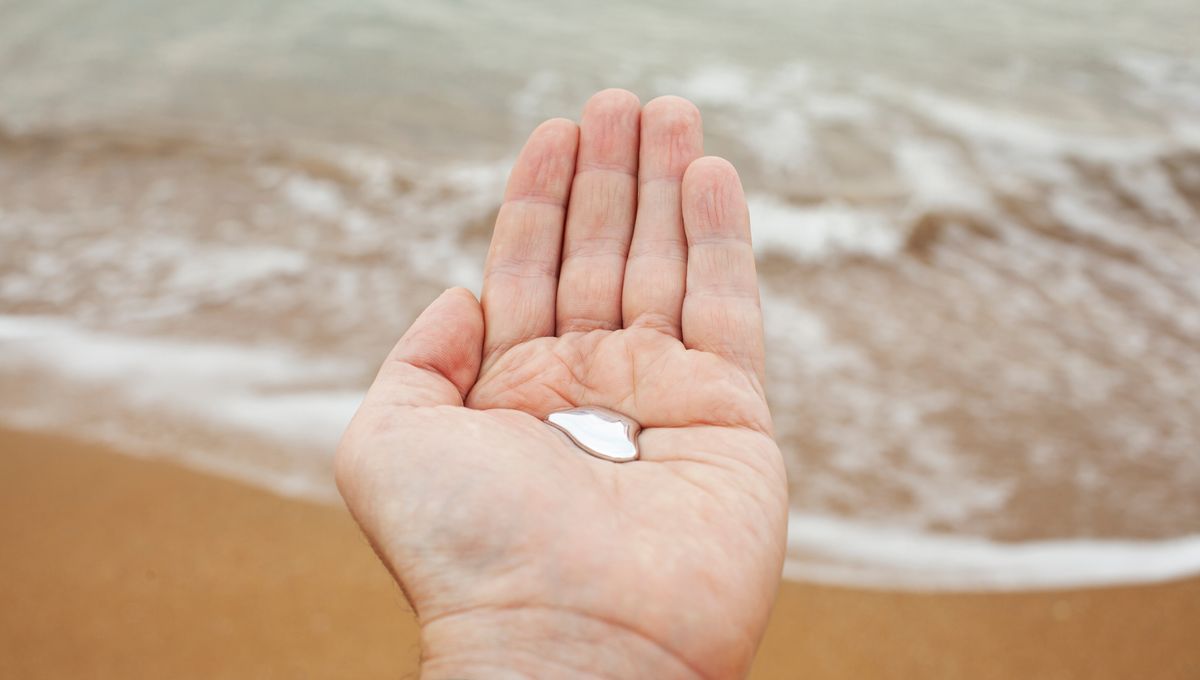
Mercury is known for its toxicity and for causing health problems around the world and throughout history. But humans are very curious about what’s dangerous and so the question comes up often: Can you touch mercury with your bare hands safely? The answer, surprisingly, is yes.
Mercury is not absorbed through our skin, so it is ok to touch it without suffering any ill effects. Mercury has a viscosity between that of water and whole milk, but a much higher density. It’s 13 times as dense as water so a major surprise would be just how heavy a few drops of mercury in the palm of your hand would be.
Now, just because the skin doesn’t absorb it doesn’t mean it should be handled carelessly. If you have any cuts and mercury enters your bloodstream, that is extremely dangerous. Another concern is if small droplets separate and turn into vapor. The skin can absorb mercury vapor but inhalation is by far the easiest way for mercury to enter our body and accumulate there.
What happens if you swallow mercury?
So, you read the bit about water and whole milk and accidentally drunk the mercury on your hands. Well, the good news is that you are not going to die because swallowing elemental mercury, fortunately, is a terrible way to absorb it. Less than 0.01 percent of elemental mercury is taken in by the gut.
Mercury poisoning is often a consequence of an accumulation of the metal either through salts or organic compounds. Human activities that release mercury into the environment are coal burning and gold mining. A lot of the mercury ingested comes from eating fish higher in the food chain that have accumulated mercury compounds by eating smaller fish. Still, studies have shown that even with the risk of mercury accumulation, eating fish is still beneficial overall.
How dangerous is mercury?
Mercury is toxic and while elemental mercury can be handled even with bare hands (with the above caveats) there are inorganic salts of mercury that are corrosive to the skin, eyes, and the gastrointestinal tract.
In general, mercury poisoning is rare but it can become less so for people heavily reliant on a fish diet as well as mining communities.
What does mercury do to the body?
Mercury and its compounds affect the central and peripheral nervous system as well as the kidneys. It can cause kidney failure, tremors, insomnia, memory loss, neuromuscular effects, headaches, and cognitive and motor dysfunction. Mercury poisoning has also been associated with a reduction in intelligence. Symptoms of poisoning include muscular weakness, poor coordination, as well as numbness in hands and feet.
So yes, you could safely hold mercury in your bare hands. But just because you could doesn’t mean you should.
All “explainer” articles are confirmed by fact checkers to be correct at time of publishing. Text, images, and links may be edited, removed, or added to at a later date to keep information current.
The content of this article is not intended to be a substitute for professional medical advice, diagnosis, or treatment. Always seek the advice of qualified health providers with questions you may have regarding medical conditions.
Source Link: What Happens If You Touch Mercury?